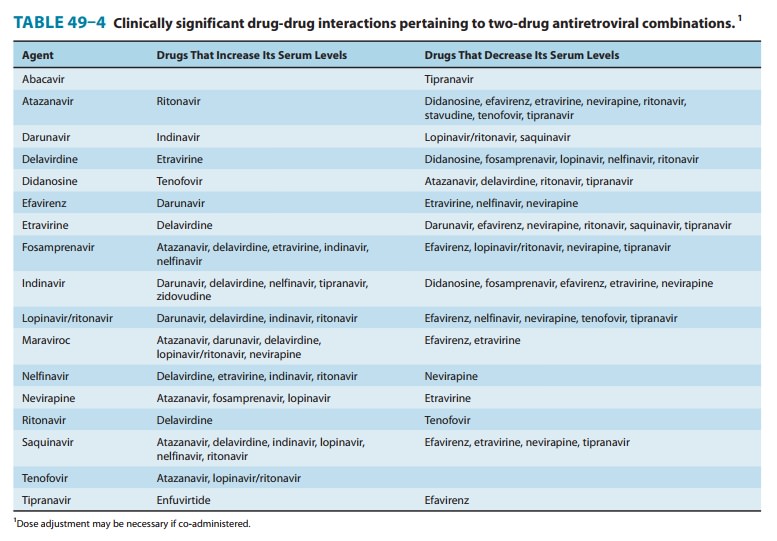Chapter: Basic & Clinical Pharmacology : Antiviral Agents
Integrase Strand Transfer Inhibitors
INTEGRASE STRAND TRANSFER
INHIBITORS
RALTEGRAVIR
Raltegravir
is a pyrimidinone analog that binds integrase, a viral enzyme essential to the
replication of both HIV-1 and HIV-2. By doing so, it inhibits strand transfer,
the third and final step of provirus integration, thus interfering with the
integration of reverse-transcribed HIV DNA into the chromosomes of host cells (Figure
49–4). It was initially licensed for use in treatment-experi-enced adult
patients infected with strains of HIV-1 resistant to multiple other agents, but
more recently has received approval for use in initial therapy as well.
However, clinical experience is lim-ited in treatment-naïve patients.
Absolute
bioavailability of raltegravir has not been established but does not appear to
be food-dependent. The drug is metabo-lized by glucuronidation and does not
interact with the cyto-chrome P450 system; therefore, it is expected to have
fewer drug-drug interactions than many of the other antiretroviral agents.
However, in combination with rifampin, a strong inducer of UDP-glucuronosyl
transferase 1A1 (UGT1A1), the dose of raltegravir should be increased from 400
mg twice daily to 800 mg twice daily. Since polyvalent cations (eg, magnesium,
calcium, and iron) may bind integrase inhibitors and interfere with their
activ-ity, antacids should be used cautiously and taken separately from
raltegravir.
Although virologic
failure has been uncommon in clinical trials of raltegravir to date, in vitro
resistance requires only a single point mutation (eg, at codons 148 or 155).
The low genetic barrier to resistance emphasizes the importance of combination
therapies and of adherence. Integrase mutations are not expected to affect
sensitivity to other classes of antiretroviral agents.
Potential adverse
effects of raltegravir include insomnia, headache, diarrhea, nausea, dizziness,
and fatigue. Increases in cre-atine kinase may occur, with potential myopathy
or rhabdomyolysis; there is minimal effect on serum lipids.

Related Topics